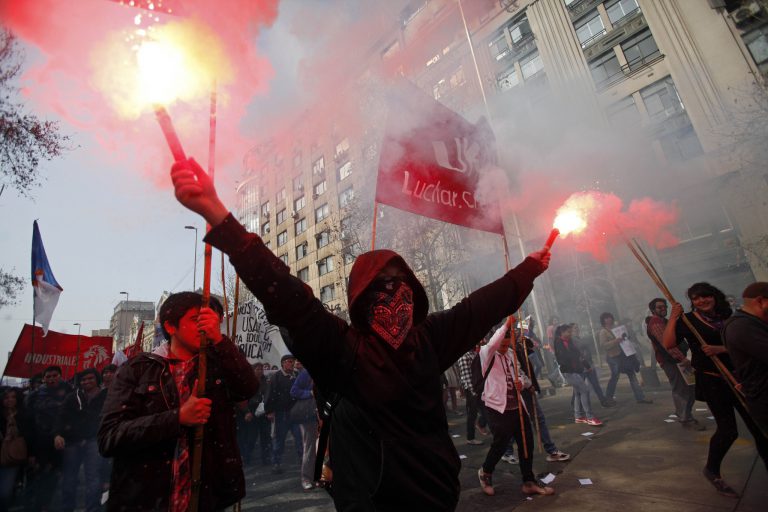
The education reform promised by Chilean President Michelle Bachelet at the beginning of 2014 seems to be on everybody’s minds these days. Thanks to laws left over from the Pinochet dictatorship, Chile is one of the world’s most segregated and neoliberal countries; a logic which applies to its education system as well. With the proposed reform, however, Chile seeks to change this situation by implementing an inclusive and public education system based on quality and excellence.
The first piece of related legislation slated to enter Chile’s congress seeks to put an end to arbitrary selection, profiteering and co-payment in private schools owned by sostenedores (nonprofit or for-profit educational organizations) but subsidized by the government. To do so, the government plans to transform all sostenedores into nonprofit organizations. If, for some reason, this can’t be done, the schools will go under municipal management instead.
This bill has already caused collective hysteria among civil society, with many Chileans thinking the measure means that thousands of schools will close their doors.
Adding to the confusion, a startling ad made waves after it was posted in a national newspaper in December. It read:
“Private subsidized school for sale. 2000 students, excellent infrastructure, good students, good parents, good teachers (professionals), contributions and salaries up to date, 25% students with grants (inclusion), seal of quality (Chile Foundation), 30 years of experience in the educational project, excellent academic results, 100% annual attendance.”
Teachers, students and parents were not in the loop and Luis Gómez, one of the sostenedores of the school, went on CNN Chile the following day to explain why he was selling the school.
“The options we have as sostenedores are too little, the way the [education reform] is presented right now. We’d have to become a corporation or a Foundation,” said Gómez. He then added, “I want to see what happens in the market, if there are people interested or not. And I also want to be able to give answers to my people. I have to be clear with my teachers, the assistants, the parents and everyone involved in this.”
The measure was seen by some as a way of pressuring the government to turn down the bill. Even though Gómez went on record saying this was not the case, he also said that the decision to sell the school would be taken “as the discussion regarding the bill unfolds in the Senate.” In the meantime, the sostenedores continue to fish the market for potential buyers.
Gómez’s ad is not the only case of a sostendor selling its “assets.” In March of last year, privately-owned Catholic school Apoquindo was also sold to Mayflower, a private, conservative educational organization. Parents and students were not consulted about the sale and were informed after the school year had already begun.
What’s truly worrisome about these incidents is the apparent ease with which private and semi-private sostenedoressell what they see as a commodity — that is, the school itself, along with its students, teachers and parents.
The underlying problem is the fact that Chilean society in general views education as a commodity, rather than a right. As long as we keep thinking this way not only will students, teachers and parents continue to be seen as objects that can be transacted in the free market, but segregation will never be eliminated.
In the end, the Senate approved the bill in discussion with some modifications, marking a step in the right direction that will hopefully begin a change, not only in Chile’s education system, but in Chilean society itself.
This article was written by Amanda Rutllant and was originally published on Latin Correspondent.







